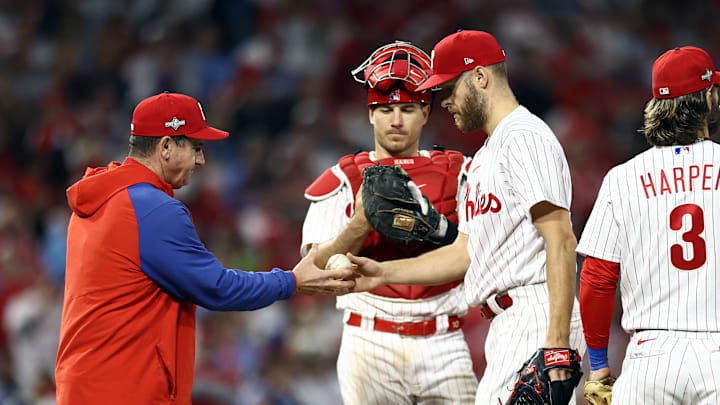Cristopher Sánchez
Cristopher Sánchez had to be the surprise of the year for this Phillies pitching staff. After showing flashes of a pretty impressive changeup in 2022, Sánchez missed some time to begin the season and only made one start before June, but once he was back, he was outstanding.
Sánchez continued to show how good that changeup really was, grading it at a top three pitch in total movement according to FanGraphs. His above-average sinker running the other way was a perfect set-up pitch to the wipe-out changeup. He also threw in a slider 21 percent of the time.
Cristopher Sanchez's 10 Strikeouts by Changeups. 😲 pic.twitter.com/j7zz0tPiRW
— Rob Friedman (@PitchingNinja) September 25, 2023
Throughout the season, Sánchez was getting more and more consistent and going deeper and deeper intro starts. He went five-plus innings in 13 of his 18 starts, going six or more innings in eight of them. An underrated part of his game was his antics on the road. As a young pitcher in the MLB, in his six starts on the road this season, he tallied a 2.08 ERA.
Sánchez has earned his spot in the rotation after his performance in limited action in 2023. When looking forward to possible rotations, Sánchez will get his shot unless the Phillies front office spends incredibly this winter. Look for him to settle into his role as a Major League starter and work on his tertiary pitches to set up that changeup better.
Grade: A-
